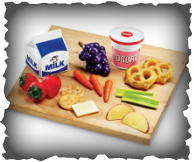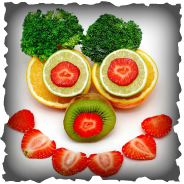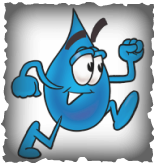YOUTH ATHLETE NUTRITION

Christopher Mohr, PhD, RD, consulting sports nutritionist for the Cincinnati Bengals and co-owner of Mohr Results in Louisville, Kentucky, says that pre- and post-workout nutrition for young clients requires thoughtful planning.
“Meal timing is important,” Mohr says. “The time you have before a game will dictate your choices. Assuming there is some time between the meal and play time, you want something that’s a little higher in carbohydrates with a moderate amount of protein. A bowl of oats with berries and nuts, for example, would work. You might also try a turkey sandwich on whole-grain bread if the meal is a little later in the day.”
Mohr says it’s important to refuel quickly after a game—ideally within 30 minutes. This is because “muscles are like a dry sponge at this time and are primed to take up more nutrients.” Mohr continues: “Again, this meal should be primarily carbohydrates with a bit of protein. Low-fat chocolate milk is a favorite of mine, or yogurt with some fruit. If you want to make your own smoothie, try one frozen banana, frozen blueberries, one cup of vanilla almond milk and a scoop of whey protein. Research shows that the combination of carbohydrates and protein postworkout helps [kids] recover and prepare for the next game or practice.
“Meal timing is important,” Mohr says. “The time you have before a game will dictate your choices. Assuming there is some time between the meal and play time, you want something that’s a little higher in carbohydrates with a moderate amount of protein. A bowl of oats with berries and nuts, for example, would work. You might also try a turkey sandwich on whole-grain bread if the meal is a little later in the day.”
Mohr says it’s important to refuel quickly after a game—ideally within 30 minutes. This is because “muscles are like a dry sponge at this time and are primed to take up more nutrients.” Mohr continues: “Again, this meal should be primarily carbohydrates with a bit of protein. Low-fat chocolate milk is a favorite of mine, or yogurt with some fruit. If you want to make your own smoothie, try one frozen banana, frozen blueberries, one cup of vanilla almond milk and a scoop of whey protein. Research shows that the combination of carbohydrates and protein postworkout helps [kids] recover and prepare for the next game or practice.

Chicago-based Jenna A. Bell, PhD, RD, CSSD, holds a doctorate in exercise science and a master’s degree in nutrition. She adds, “Coaches and parents are often challenged to find the best pre-exercise or prerace snack for kids. I always say, keep it simple and stick to the basics. Try foods that kids are comfortable with, since nervousness often makes their bellies turn, and portability is often an issue. Try peanut butter and jelly sandwiches (great for on the road), bring a bag of pistachios and dried fruit, pack a cooler with string cheese and crackers or bring whole-wheat bagels and peanut butter. Bananas, apples, oranges and grapes are great as well. The aim is to give kids carbohydrates to help them fuel their activity. After exercise, kids are ready to restore their lost fuel, replenish nutrients and repair their muscles. I tell coaches and parents to try to give them a healthy snack within 30 minutes of exercise completion.”

HYDRATION
Reminding young athletes to drink water is vital, given that children and adolescents often don't recognize dehydration, says Jim White, RD, CPT, ACSM. Diet is another good way to replenish electrolytes and is preferred over sports drinks for young child athletes, White adds. "Teaching the young athlete to consume sodium-containing foods for recovery is a great way for children to retain water and increase thirst in order to drink more fluids," he says. "Depending on how long the child was exercising, this snack or meal could be a peanut butter and banana sandwich, or whole grain pasta topped with chicken, vegetables, tomato sauce, and shredded mozzarella."
Prehydration for Performance
Given the importance of hydration for optimal athletic performance, being properly hydrated before practices and competitions also is essential. Prehydration often is a problem for young athletes, due to their potential inability to perceive thirst and rehydrate appropriately. In 2012, a researcher studying hydration in young athletes reported that 50% to 75% of child and adolescent athletes already are dehydrated before beginning sports practice and competition, thereby increasing the risk of further dehydration and its side effects during sport activity.
In 2011, the AAP released recommendations for sports drinks. According to its guideline, patients and families must learn that sports drinks have a specific limited function for child and adolescent athletes. Sports drinks should be ingested only when there's a need for more rapid replenishment of carbohydrates and electrolytes in combination with water during periods of prolonged, vigorous sports participation or other intense physical activity. Children and adolescents never should consume energy drinks that contain stimulants such as caffeine and guarana due to associated health risks.
Sports drinks should follow the 6% to 8% carbohydrate guideline to minimize weight gain and side effects from high-sugar content.
Reminding young athletes to drink water is vital, given that children and adolescents often don't recognize dehydration, says Jim White, RD, CPT, ACSM. Diet is another good way to replenish electrolytes and is preferred over sports drinks for young child athletes, White adds. "Teaching the young athlete to consume sodium-containing foods for recovery is a great way for children to retain water and increase thirst in order to drink more fluids," he says. "Depending on how long the child was exercising, this snack or meal could be a peanut butter and banana sandwich, or whole grain pasta topped with chicken, vegetables, tomato sauce, and shredded mozzarella."
Prehydration for Performance
Given the importance of hydration for optimal athletic performance, being properly hydrated before practices and competitions also is essential. Prehydration often is a problem for young athletes, due to their potential inability to perceive thirst and rehydrate appropriately. In 2012, a researcher studying hydration in young athletes reported that 50% to 75% of child and adolescent athletes already are dehydrated before beginning sports practice and competition, thereby increasing the risk of further dehydration and its side effects during sport activity.
In 2011, the AAP released recommendations for sports drinks. According to its guideline, patients and families must learn that sports drinks have a specific limited function for child and adolescent athletes. Sports drinks should be ingested only when there's a need for more rapid replenishment of carbohydrates and electrolytes in combination with water during periods of prolonged, vigorous sports participation or other intense physical activity. Children and adolescents never should consume energy drinks that contain stimulants such as caffeine and guarana due to associated health risks.
Sports drinks should follow the 6% to 8% carbohydrate guideline to minimize weight gain and side effects from high-sugar content.

What is Juice Plus+®
Next Best Thing To Fruits and Vegetables
Juice Plus+ is whole food based nutrition, including juice powder concentrates from 30 different fruits, vegetables and grains. Juice Plus+ helps bridge the gap between what you should eat and what you do eat every day. Not a multivitamin, medicine, treatment or cure for any disease, Juice Plus+ is made from quality ingredients carefully monitored from farm to capsule to provide natural nutrients your body needs to be at its best.
Next Best Thing To Fruits and Vegetables
Juice Plus+ is whole food based nutrition, including juice powder concentrates from 30 different fruits, vegetables and grains. Juice Plus+ helps bridge the gap between what you should eat and what you do eat every day. Not a multivitamin, medicine, treatment or cure for any disease, Juice Plus+ is made from quality ingredients carefully monitored from farm to capsule to provide natural nutrients your body needs to be at its best.







